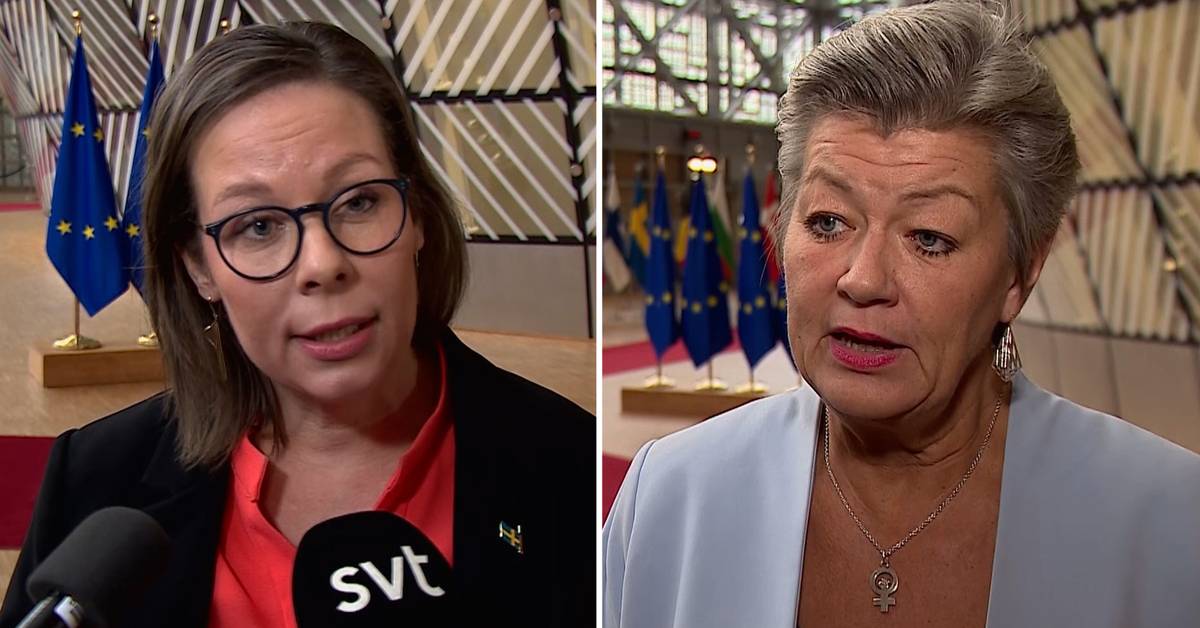The number of newly arrived migrants and asylum seekers has increased sharply, both across the central Mediterranean and other routes in Europe.
It has led to heavy pressure on various receptions in countries such as Austria and Belgium and real friction between Italy and France after arguments about the care of all those picked up at sea.
Therefore, the migration ministers of the EU countries are now gathering for an emergency meeting on Friday afternoon.
On the agenda is a crisis plan that the European Commission put forward as recently as Monday, with 20 points on quick measures.
- We cannot deal with this boat by boat, but we have to find a long-term solution to find both solidarity and responsibility going forward, says Migration Minister Maria Malmer Stenergard (M) on her way into the meeting.
Refugee boats
The dispute between Italy and France has led to an inflamed debate about the rescue ships in place in the Mediterranean to help migrants and refugees placed at sea by refugee smugglers, often in barely seaworthy boats.
Italy wants to see tougher measures against rescue organisations, for example in the form of a "code of conduct".
Both the commission and the Swedish government state at the same time that it is not really an EU issue to discuss international maritime law, but that it is good that the issue is raised.
- It is an extra challenge with these volunteer boats, which of course save human lives, but which one can also fear makes it more attractive to apply for the sea route.
In the worst case, they risk attracting people to seek a dangerous escape route, says Malmer Stenergard's state secretary Anders Hall in connection with a meeting of the Riksdag's EU committee on Friday.
“Must deal with the problem”
EU Commissioner Ylva Johansson (S) is aware that there has been a change regarding those who seek to reach Europe via sea routes, and that it is a growing problem that the EU and the government must deal with.
- The big increase is that it is people who come who do not need international protection.
These are people who want to come to look for a job and they are welcome to do so, but not this way, says EU Commissioner Ylva Johansson.

